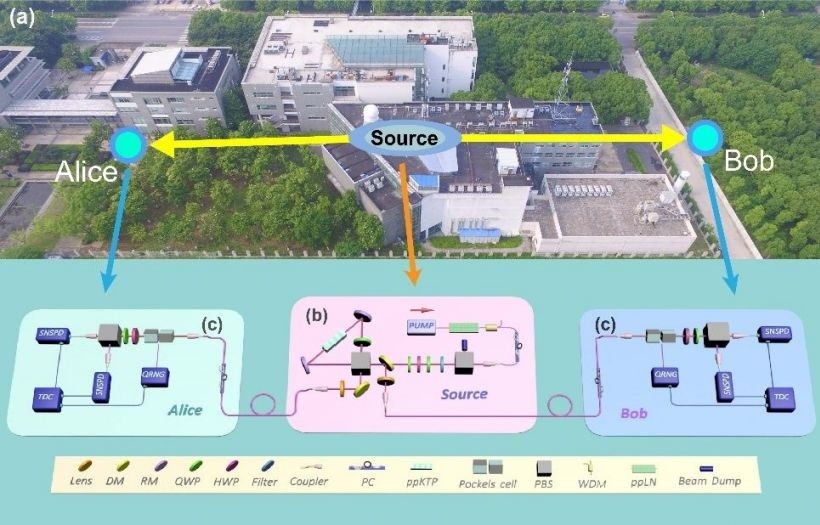In the vast field of quantum physics, Chinese scientists have once again written a strong stroke. The research team of the University of Science and Technology of China, under the leadership of Academician Pan Jianwei, has achieved the Hardy paradox test without loopholes for the first time, which is not only a profound verification of the non-locality theory of quantum mechanics, but also an important milestone in the development of quantum information technology.
Hardy's paradox: the quantum vs. classical controversy
In the 90s, physicist Lucien Hardy proposed the Hardy paradox, which aims to test local reality in quantum mechanics in a new way. Hardy's paradox uses a series of logical reasoning to show that under certain conditions, the results of quantum mechanical predictions are contrary to those of localized realism. Specifically, when the probability of occurrence of three specific events is zero in the theory of localized realism, quantum mechanics predicts that the probability of occurrence of the fourth event is greater than zero. The proposal of this theory provides a new test method for the non-locality of quantum mechanics.
Vulnerability-free testing: challenges and breakthroughs
However, implementing a loophole-free Hardy paradox test is not an easy task. In past experiments, due to the existence of detection efficiency loopholes and localized loopholes, the classical localized latent variable theory can always find an explanation for the experimental results. The existence of these loopholes makes it impossible to completely prove the non-locality of quantum mechanics.

Pictured: A research team at the University of Science and Technology of China (USTC) has achieved the Hardy's paradox test for the first time without loopholes
Through unremitting efforts, the research team at the University of Science and Technology of China has developed a high-efficiency and high-fidelity optical quantum entangled state preparation and measurement system. In the experiment, they optimized the parameters of the spatial optical path and successfully generated entangled photon pairs with a predictable detection efficiency of 82% and a fidelity of up to 99.1%. This achievement not only closes the detection efficiency loophole, but also lays the foundation for the closure of local vulnerabilities.
Spatiotemporal configuration: the key to closing local vulnerabilities
In quantum entanglement experiments, ensuring that the generation of entangled photon pairs and the observer's measurement selection are separated in quasi-spatial space is the key to closing the locality vulnerability. The research team at the University of Science and Technology of China (USTC) has effectively closed the locality loophole by carefully designing the spatiotemporal configuration to ensure that all measurement events and selections are space-like separation.
Experimental significance: basic research and technology application
The significance of this research goes far beyond theoretical breakthroughs. It provides a solid foundation for the development of quantum information technology such as quantum key distribution and quantum random number authentication. As an important part of the new generation of information technology, quantum information technology has irreplaceable advantages in many fields due to its security, randomness and efficiency. The implementation of the loophole-free Hardy paradox test will undoubtedly promote the development and application of these technologies.
Internationally recognized: Editor's Recommendation and Reviewer Evaluation
This achievement of Chinese scientists has been highly recognized by the international academic community. The research results were published in Physical Review Letters under the title of "Loophole-Free Test of Local Realism via Hardy's Violation", and won the honor of "Editor's Choice". The reviewers commented that the work was "impressive in terms of experimental results and quantitative evidence to test the localized reality", which is not only an affirmation of the work of the research team, but also a recognition of China's research strength in the field of quantum science.
Conclusion: The Future of Quantum Science
For the first time, Chinese scientists have realized the hole-free Hardy paradox test, which is not only a profound verification of the theory of quantum mechanics, but also a powerful impetus for the development of quantum information technology. This achievement demonstrates China's research strength in the field of quantum science, and also provides a new direction and impetus for global quantum science research. With the continuous development of quantum science, we have reason to believe that quantum technology will show its unique charm and potential in more fields in the future.






